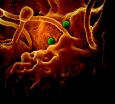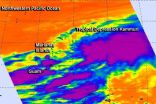(Press-News.org) MINNEAPOLIS – New research suggests that people without dementia who begin reporting memory issues may be more likely to develop dementia later, even if they have no clinical signs of the disease. The study is published in the September 24, 2014, online issue of Neurology®, the medical journal of the American Academy of Neurology.
"What's notable about our study is the time it took for this transition to dementia or clinical impairment to occur—about 12 years for dementia and nine years for clinical impairment—after the memory complaints began," said study author Richard J. Kryscio, PhD, with the University of Kentucky in Lexington. "These findings suggest that there may be a window for intervention before a diagnosable problem shows up."
For the study, 531 people with an average age of 73 and free of dementia were asked yearly if they noticed any changes in their memory. They were also given annual memory and thinking tests for an average of 10 years. After death, 243 of the participants' brains were examined for evidence of Alzheimer's disease.
A total of 56 percent of the participants reported changes in their memory, at an average age of 82. The study found that people who reported memory complaints were nearly three times more likely to develop memory and thinking problems. About one in six participants developed dementia during the study, and 80 percent of those first reported memory changes.
"Our study adds strong evidence to the idea that memory complaints are common among older adults and are sometimes indicators of future memory and thinking problems. Doctors should not minimize these complaints and should take them seriously," said Kryscio. "However, memory complaints are not a cause for immediate alarm since impairment could be many years away. And, unfortunately, we do not yet have preventive therapies for Alzheimer's disease and other illnesses that cause memory problems."
INFORMATION:
The study was supported by the National Institutes of Health, the National Institute on Aging and the National Center for Advancing Translational Sciences. Kryscio is the Associate Editor, Biostatistics, for the Neurology® journal.
To learn more about dementia, please visit http://www.aan.com/patients. The American Academy of Neurology, an association of 28,000 neurologists and neuroscience professionals, is dedicated to promoting the highest quality patient-centered neurologic care. A neurologist is a doctor with speceimer's disease, stroke, migraine, multiple sclerosis, brain injury, Parkinson's disease and epilepsy.
For more information about the American Academy of Neurology, visit http://www.aan.com or find us on Facebook, Twitter, Google+ and YouTube.
Memory slips may signal increased risk of dementia years later
2014-09-24
ELSE PRESS RELEASES FROM THIS DATE:
Think you have Alzheimer's? You just might be right, study says
2014-09-24
LEXINGTON, Ky. (Sept. 24, 2014) -- New research by scientists at the University of Kentucky's Sanders-Brown Center on Aging suggests that people who notice their memory is slipping may be on to something.
The research, led by Richard Kryscio, PhD, Chairman of the Department of of Biostatistics and Associate Director of the Alzheimer's Disease Center at the University of Kentucky, appears to confirm that self-reported memory complaints are strong predictors of clinical memory impairment later in life.
Kryscio and his group asked 531 people with an average age of 73 ...
Clinical trial examined treatment for complicated grief in older individuals
2014-09-24
Bottom Line: A treatment designed to help older individuals deal with complicated grief (CG) after the loss of a loved one appeared to be more effective than using a treatment designed for depression.
Authors: M. Katherine Shear, M.D., of the Columbia University School of Social Work, New York, and colleagues.
Background: About 9 percent of bereaved older women experience CG, a serious and debilitating mental health problem associated with functional impairment and increased suicidality. The symptoms can include prolonged grief, frequent thoughts and memories of the ...
Family-based therapies can treat anorexia in teens, Stanford/Packard study finds
2014-09-24
Two different family-based therapies are both effective at combating anorexia nervosa in teenagers, according to the largest study ever to compare two such treatments for the life-threatening eating disorder.
The findings, from a multisite study led by researchers at the Stanford University School of Medicine, add to a growing body of evidence supporting the value of parents' involvement in anorexia treatment.
The results, which will be published Sept. 24 in JAMA Psychiatry, follow prior Stanford research that found a family-based approach was twice as effective as ...
NIH study supports camels as primary source of MERS-CoV transmission
2014-09-24
National Institutes of Health (NIH) and Colorado State University (CSU) scientists have provided experimental evidence supporting dromedary camels as the primary reservoir, or carrier, of Middle East respiratory syndrome coronavirus (MERS-CoV). The study, designed by scientists from CSU and NIH's National Institute of Allergy and Infectious Diseases, involved three healthy camels exposed through the eyes, nose and throat to MERS-CoV isolated from a patient. Each camel developed a mild upper respiratory tract infection consistent with what scientists have observed throughout ...
When David beats Goliath
2014-09-24
Body size has long been recognized to play a key role in shaping species interactions, with larger species usually winning conflicts with their smaller counterparts. But Queen's University biologist Paul Martin has found that occasionally, small species of birds can dominate larger species during aggressive interactions, particularly when they interact with distantly related species.
The new findings provide evidence that the evolution of certain traits can allow species to overcome the disadvantage of a smaller size.
"We want to understand why species live where they ...
First mouse model for ALS dementia
2014-09-24
CHICAGO --- The first animal model for ALS dementia, a form of ALS that also damages the brain, has been developed by Northwestern Medicine® scientists. The advance will allow researchers to directly see the brains of living mice, under anesthesia, at the microscopic level. This will allow direct monitoring of test drugs to determine if they work.
This is one of the latest research findings since the ALS Ice Bucket Challenge heightened interest in the disease and the need for expanded research and funding.
"This new model will allow rapid testing and direct monitoring ...
Findings give hope to plant extract as possible lupus treatment
2014-09-24
HOUSTON, Sept. 24, 2014 – New findings by a biomedical engineer and his team at the University of Houston (UH) raise hope for a new class of drugs to treat lupus that may not include the long list of adverse risks and side effects often associated with current treatments for this disease.
Lupus, or systemic lupus erythematosus, is a progressive, degenerative disease in which the immune system turns against itself, attacking a person's healthy tissue, cells and organs. Symptoms range from debilitating pain and fatigue to organ failure and a host of other impairments. ...
Captive whooping cranes released into the wild
2014-09-24
NECEDAH, Wis. – Four whooping crane chicks raised in captivity began their integration into the wild Saturday as part of the continuing effort to increase the wild population of this endangered species.
The cranes, hatched and raised by their parents at the U.S. Geological Survey's Patuxent Wildlife Research Center in Laurel, Maryland, were released on the U.S. Fish and Wildlife Service's Necedah National Wildlife Refuge in Wisconsin.
The chicks, about six-months old, are part of an experimental rearing and release method referred to as "parent-rearing." The parent-reared ...
NASA sees System 98W become Tropical Depression Kammuri
2014-09-24
Strong thunderstorms around the center of circulation in tropical low pressure System 98W were seen on infrared satellite imagery and were a clue to forecasters that the storm was intensifying. Early on Sept. 24, the storm intensified into Tropical Depression Kammuri far north of Guam.
NASA's Aqua satellite passed over Tropical Depression Kammuri on Sept. 24 at 12:23 a.m. EDT. Kammuri is a large storm and strong thunderstorms covered a long area within the somewhat elongated circulation. The circulation center was near the western edge of the massive extent of clouds. ...
Arabic tweets point to US influence as fuel for anti-Americanism
2014-09-24
An analysis of millions of Arabic-language tweets confirms high levels of anti-Americanism there, provides new and interesting information about attitudes in the Middle East toward particular U.S. actions, and charts a path for using Twitter to measure public sentiment in ways opinion polls cannot.
The findings also highlight policy challenges — and opportunities — for the United States in the Middle East, said Amaney Jamal, a professor of politics at Princeton University who conducted the research with colleagues at Princeton and Harvard University.
"Can the U.S. ...




